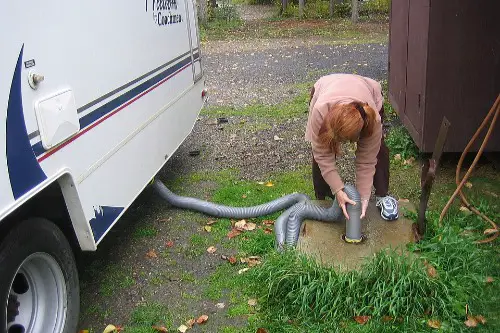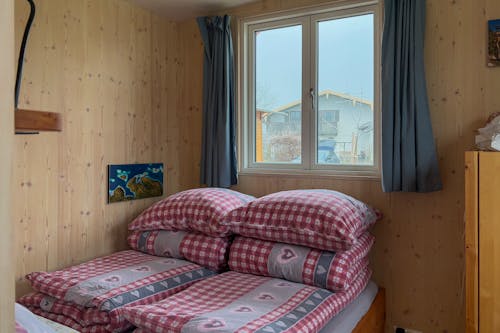1. Giving Up a Permanent Kitchen

One of the first things people miss after leaving traditional homes is a full-sized kitchen. Cooking in a compact or mobile setup often means sacrificing counter space, proper appliances, or even a reliable oven. While it may sound charming to live off one-pot meals, the novelty fades quickly. Eventually, even making coffee can feel like a production.
Over time, food costs may also rise because of eating out more often or relying on prepackaged items. People who love cooking often feel the loss the hardest, missing the creativity that comes with a real kitchen. It can also affect nutrition and health, as limited storage makes it harder to keep fresh produce. The regret is less about the dream of simplicity and more about how daily life gets trickier without a well-equipped cooking space.
2. Downsizing Too Quickly

Many people who move out of traditional homes regret giving up too much space too soon. It can feel liberating at first to have fewer belongings, but later, the lack of storage becomes frustrating. Seasonal items, sentimental keepsakes, or even basic tools suddenly feel like luxuries you no longer have room for. That sense of loss creeps up over time and can turn what was meant to be a simple life into one that feels limited.
The adjustment often brings a hidden emotional weight. Letting go of a dining table, for example, may seem practical until you realize you can no longer host family dinners. Even everyday activities like cooking or crafting can feel cramped without a little extra space. That regret is less about minimalism itself and more about downsizing faster than life circumstances demanded.
3. Losing Privacy

When you leave a traditional home for something smaller or shared, privacy tends to vanish. Walls are thinner, rooms are closer, and sound carries much further. What was once a private conversation might now feel like it’s happening in public. That loss can be unsettling, especially for people used to retreating to a quiet corner.
Privacy isn’t just about noise—it’s also about personal space. Without a separate room, it can be hard to cool off after an argument or recharge after a social day. The lack of boundaries makes relationships feel more intense, and not always in a good way. Many find themselves longing for the simple luxury of closing a door.
4. Compromising on Climate Control

Traditional homes usually have built-in heating and cooling systems that keep things comfortable year-round. Smaller or alternative spaces often rely on less efficient options, like space heaters or fans. That can mean sweltering summers and freezing winters, sometimes in the same place. Comfort becomes inconsistent, and sleep can suffer as a result.
Climate control also affects health. Extreme temperatures indoors can trigger respiratory issues or make existing conditions worse. Over time, constant discomfort wears down morale and makes everyday living more stressful. People often regret underestimating just how important a reliable HVAC system really was.
5. Limited Laundry Options

A washer and dryer in the home is something many don’t appreciate until it’s gone. Once you’re relying on laundromats or small, portable units, the process becomes a hassle. It’s not just about time—it’s about the inconvenience of lugging loads and scheduling chores around available machines. Rainy days or late nights can turn laundry into a genuine stress point.
The costs add up too. Regular trips to laundromats can become surprisingly expensive, especially in cities. For families, the challenge multiplies, turning a simple chore into a logistical puzzle. Regret often shows up the first time you’re stuck without clean clothes and no easy fix.
6. Letting Go of Outdoor Space

Leaving a traditional home often means losing a backyard, patio, or even a modest garden. That change doesn’t seem big until you miss the freedom of stepping outside without leaving your property. Whether it’s kids playing, pets running, or simply relaxing under the sun, outdoor access is a lifestyle perk hard to replicate. It’s more than just space—it’s a sense of grounding.
Without outdoor space, hobbies like gardening or grilling vanish overnight. Even simple things like drying clothes outside or having a morning coffee outdoors require planning. Some people end up feeling boxed in, especially if they moved into urban or mobile settings. The regret builds quietly, often surfacing on the first warm spring day.
7. Dealing with Constant Mobility

For those who leave traditional homes for mobile living, the constant need to move can wear thin. At first, it feels adventurous to travel from place to place. But over time, the logistics of finding safe parking, fuel costs, and route planning add up. The spontaneity turns into a steady stream of stress.
Mobility also complicates relationships and routines. Building community is harder when you’re always on the move. Everyday appointments—like doctors, gyms, or classes—become challenging to maintain. The lifestyle adjustment that once seemed like freedom can start to feel like rootlessness.
8. Overlooking Maintenance Realities

A smaller or alternative home doesn’t mean less maintenance—it often means different, trickier maintenance. Plumbing, electrical work, or structural fixes in tiny or mobile homes can be harder to address. Replacement parts may be less available, and professional help often costs more because it’s specialized. That reality surprises many who thought they were simplifying.
The DIY approach isn’t always enough. Even small leaks or wiring issues can escalate quickly in a compact setup. Constant vigilance becomes part of life, adding stress instead of removing it. Many regret trading one set of household responsibilities for another that feels even more unpredictable.
9. Sacrificing Sound Insulation

Noise is another regret people don’t anticipate. Thinner walls in nontraditional housing amplify both internal and external sounds. Neighbors’ conversations, street traffic, or even the hum of nearby appliances become impossible to ignore. Sleep and relaxation often suffer.
Over time, constant noise exposure can lead to irritability and fatigue. What was once excitement about “hearing life around you” quickly turns into frustration. Without quiet moments, stress builds and personal space feels invaded. People often miss the solid silence that came with traditional homes.
10. Limited Guest Hosting

Having friends or family stay over becomes tricky without extra rooms. What was once a joyful part of home life—hosting dinners or sleepovers—becomes stressful. Folding beds or sleeping bags in cramped corners rarely provide comfort. Over time, people start inviting loved ones less often.
That change affects relationships. Traditions like holiday gatherings or weekend visits fade because of the lack of space. The regret usually shows up when people realize they’ve stopped creating those shared memories. It’s not just about space—it’s about connection.
11. Missing Storage for Hobbies

Hobbies often require more room than people expect. Art supplies, sports gear, instruments, or even books quickly overwhelm smaller living arrangements. Letting go of hobbies or storing gear elsewhere can feel like giving up a piece of yourself. The regret creeps in when you realize your space no longer reflects your passions.
For some, this loss even affects mental health. Creative outlets and leisure activities are tied closely to well-being. Without room for them, life feels more functional than fulfilling. That trade-off can feel heavier than expected over time.
12. Underestimating Utility Needs

Smaller spaces often mean reduced access to reliable water, electricity, or internet. What once was taken for granted now requires careful planning. Limited water tanks, generator issues, or weak Wi-Fi connections complicate daily life. Tasks like showering, working remotely, or streaming movies suddenly feel like luxuries.
The unpredictability adds stress. Work-from-home arrangements become unreliable, and everyday routines require constant adjustment. Many realize too late that utilities aren’t just conveniences—they’re the foundation of modern living. The regret builds with every disrupted plan or dropped call.
13. Safety Concerns

Traditional homes often come with built-in safety features like solid locks, secure neighborhoods, or alarm systems. Nontraditional housing sometimes lacks those layers of protection. Break-ins, accidents, or even severe weather can feel more threatening. That vulnerability lingers in the back of people’s minds.
Over time, constant vigilance takes a toll. Sleeping lightly, worrying about theft, or bracing for storms chips away at peace of mind. What seemed like a bold adventure begins to feel unsafe. That shift in perspective is one of the hardest adjustments to reconcile.
14. Feeling Socially Isolated

Leaving a traditional home often means leaving a neighborhood community behind. Daily interactions with neighbors, shared routines, or even simple waves across the street disappear. Without those small connections, loneliness can creep in. Many underestimate how grounding that sense of belonging was.
Building new social ties isn’t always easy, especially in transient or compact settings. Online communities help but can’t fully replace in-person bonds. Holidays and milestones feel different without familiar faces nearby. The regret surfaces when people realize how much they valued those casual, everyday connections.
15. Romanticizing Minimalism

Perhaps the most common regret is realizing the lifestyle wasn’t as dreamy as imagined. Social media often paints small or mobile living as endlessly cozy and carefree. The reality, though, is filled with compromises, inconveniences, and unglamorous routines. The gap between expectation and reality can be disappointing.
Minimalism works for some, but it doesn’t erase the need for comfort, privacy, or practicality. Many people find they miss things they once considered unnecessary. That regret isn’t failure—it’s just an honest acknowledgment of what makes life feel whole. The adjustment teaches that simplicity doesn’t have to mean scarcity.
This post 15 Lifestyle Adjustments People Regret After Leaving Traditional Homes was first published on Greenhouse Black.
